Innate, trained, or a mix?
"Aggressive dogs aren't born, they're raised that way."
How many times have you heard this statement? Have you ever wondered how much truth there is to it?

Owners of reactive or aggressive dogs frequently say, "I've had other dogs before and none of them have been like this, so I don't know where I went wrong!"
I meet once a week with a couple of friends who have "dog-aggressive dogs." We work on behaviors like recalls and loose-leash walking with other dogs around. Each of us has two dogs and, without exception, just one of the dogs is reactive to other dogs while the other is completely sociable with other dogs. Why is this?
If owners had a deficiency in their ability to raise a pup, surely the deficiency would be manifest in other dogs that they owned? Is the aggressive behavior a problem with the reactive dog's temperament, the owner's raising and training of the dog, or a bit of both?
Aggressive behavior is reinforced
Let's begin by stating an important fact: aggressive behavior is operant behavior. Yes, yes, I know that aggression is usually a symptom of fear, anxiety, or stress (and, occasionally, instinct), and that most experts recommend classical conditioning to treat the cause of aggression. But the fact remains that the actual aggressive behavior is operant. It is the product of reinforcement.
An example is the dog who, uncomfortable around other dogs, barks out of fear. This may be unconditioned behavior the first time, but if it works and the other dog keeps his distance or leaves, it may serve to reinforce the behavior of barking. The barking then becomes operant behavior. The next time the fearful dog sees another dog, he has a behavior that has worked in the past to keep the other dog away. So, he repeats it.
The dog's owner is likely to be lambasted by well-meaning folk for not socializing a dog adequately, or for not being "alpha," or for not earning the dog's trust—or it may even be implied that the owner leads by a fearful or aggressive example!
Having followed the socialization prescription to the letter with one of my own dogs—a reactive dog—I would bet money that it is the quality of adequate socialization that inoculates the young dog against developing fear-based aggression, not the quantity of socialization. Socialization experiences that are not beneficial are just as likely to cause fear-based aggression as too few socialization experiences.
So, aggression is operant behavior, since every socialization experience that reinforces aggression maintains or increases it. That said, dog owners must provide frequent and varied socialization experiences so that the dog learns that other dogs and other people, new places, new sounds, and new objects are not something to be feared. This level of exposure is what I mean by "adequate"—enough to reinforce appropriate behaviors and have those behaviors generalize to new and varied experiences.
Certainly it is possible for a dog's owner to reinforce fearful or aggressive behaviors in a dog. This reinforcement can come from attempts at soothing, from removing the dog from stressful situations immediately after aggressive behavior has been displayed, from putting the dog into situations where the dog is likely to display reactive behavior in order to cope, or from botched attempts to reprimand aggressive behavior.
Set up for success—and get help when needed
The "Golden Rule" in dog training is to set the dog up for success, then reinforce that success. Experienced dog owners may pick up the signs of fear or anxiety early enough to take decisive and beneficial action, and then reinforce appropriate behaviors. Less experienced dog owners should seek help from a competent instructor as soon as they get a pup, or, if not then, at the first sign of trouble—before accidentally worsening the aggressive or fearful behavior.
Genetics matter
A genetic predisposition toward fearful or aggressive behavior can make it very difficult for even experienced dog owners to avoid having fearful or aggressive behaviors reinforced in a dog. Some dogs will never be completely comfortable around whatever their aggression target is, even after being trained so that they don't display aggressive behavior any more. The safety of the aggression target is never assured. I trained one of my dogs not to attack people on bikes under virtually any circumstance, at any speed, even off-leash. Yet one day, while I was tying my shoelace, she lunged at a rider as he passed. I hadn't trained for that! Hope that the training will generalize, but even if it does, do not expect 100% reliability.
Some dogs, and some breeds in particular, are more likely to "fight" than "flee" when faced with a stressful situation. It is no coincidence that my golden retriever runs from a stressful situation, while my German shepherd will stay and face the threat head-on. Both responses are entirely normal for the breeds (to a degree). It would be very difficult to train a police dog who ran away when faced with threat. That doesn't mean that all phenotypically-ideal German shepherds will be aggressive, but it may mean that extra care is required to ensure that behaviors appropriate to the situation are reinforced and trained to fluency.
Separating interconnections is difficult
Dog owners certainly can and do make mistakes that contribute to a dog's aggression or reactivity, but it wouldn't be fair to place the blame solely with a dog's owner. There are many factors and events in a dog's life that contribute to aggressive or reactive behavior. If we could go back in time and erase all the owner's mistakes, in many cases the dog would still learn to use aggressive or reactive behaviors. The good news is that behavior is changeable. We can shape it one click at a time.


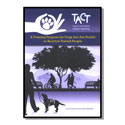
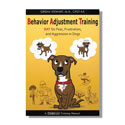
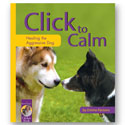
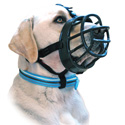
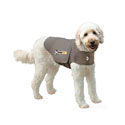

aggression towards humans
ive got a young dog that has bitten me badly on a few different occasions now.the first time was only a week after id got him at 9 months old and he bit me down to the bone.
ive wondered if hes biting because hes in pain as he has a bad hip and has slipping patellas too.he is extremely aggressive towards me he growls and grumbles if i try to interact with him but then he will follow me and wants me to pet him.im at my wits end now and really dont know what to do with him.hes 18 months old now very cocky and will not take any interferance from me ie handling his paws ears head or anything else unless hes in the mood to be fondled
Aggression toward humans
Thanks for your comment about your biting dog. Aggression is very complex and cannot be adequately handled through this medium. It's important that you do two things: (1) find a qualified veterinary behaviorist and (2) have your dog seen immediately to rule out any physical problems. Try to avoid the situations in which it's likely that your dog will bite. A veterinary behaviorist will be able to do an in-depth exam on your dog for both physical problems and behavioral problems.
Laurie Luck
Karen Pryor Academy for Animal Training & Behavior
Thanks for this article
Just wanted to say thanks for this article. I am saving up money for a behaviorist for my (fearful?)boxer. He whines/growls/lunges (depending on their proximity) at people & dogs we pass on our walks. We didn't realize he had this behavior when we adopted him & he is only getting worse. I have started to walk him at times when our sidewalk will be as deserted as possible so that he can have a good experience & also I treat him when we walk by a house w/ a barking dog inside & he does well (don't have a clicker yet - new to this). After reading this article I'm hopeful that he can/will get better & I also feel a little more confident. Thanks & I can't wait to read the other articles on this site.
Same-Sex Aggression?
Thank you for the excellent article. I have been feeling like a complete failure dealing with aggression betwen two spayed female dogs in my multi-dog household. Both are rescues; one is a mix(possibly Australian Cattle Dog / Pitbull based on appearance and smarts.) Dog #2 is a GSD obtained from owners who had chained her and used a shock collar on her to stop her dog-aggression. She had a litter of puppies at 9 months of age and was most likely being protective of them when the shock collar was employed.I obtained her as a 1yr-old. She is extremely affectionate with humans and loves the vet-no aggression at all. Dog #1 has excellent doggy social skills and is friendly but polite with other dogs of either sex.
The two were quite good with each other until neighbors who let their dogs roam moved in across the street, and fence-fighting began with those dogs. I think redirected aggression prompted the first fight in which dog #1 was badly injured. I worked with a professional trainer who used clicker training extensively for many months of CC/DS sessions. After more than two years, they could at least see and sniff each other through a baby gate without behaving aggressively. I also used management-not allowing them out together or even in the same room without a physical barrier (crates or baby gates.)
Then last week, the GSD was in the yard when the neighbor dogs ran over and started fence-fighting . Dog #1 got out of the house, thanks to a third dog who wedged her body in the door when I went out to call the GSD away from the fence.The GSD made a beeline for Dog #1 and attacked before I could move, resulting in severe injuries to Dog #1 (numerous deep piunctures, lacerations and ear-to-ear degloving on the back of the neck.) before I could get them apart.
Is there any possible hope that these two can coexist ? Is this more of a same-sex issue? The GSD can be really snarky with other females, if not downright trying to attack them. She is respectful of my no-nonsense neutered male: so-so with another softer male dog. She has had extensive screening for and treatment of health problems the first owners neglected, and she's also been on fluoxetine to reduce her anxiety. Rehoming is an unlikely possibility; I foster for a rescue and have had another foster GSD for two years now(this is an economically depressed area of the South.)
I've never been one to give up on a dog, but the severity of her attacks is really frightening and as careful as I've been, management can fail.I'm concerned for the safety of my other dogs.
Is there anything I'm overlooking? Any other techniques or resources you could recommend?
re: Same-Sex Aggression?
You're really up against it with your neighbours not helping at all, genetics, and learning history.
I would be putting my efforts into management solutions so that at least both dogs can be kept
safe. Then look at ways to exercise and spend time with each dog time efficiently.
I can't really recommend much in the way of training or behaviour mod from here, but I do like to
see results almost immediately even if I have to wear the clicker out with a super-high rate of
reinforcement.
cThanks, and sorry for not
cThanks, and sorry for not being able to check your answer sooner...it has been hectic here.
I have essentially turned the house into Checkpoint Charlie at each and every entry/exit indoor and out. I have seriously enriched the pockets of the baby gate industry by adding even more gates/barriers to prevent "unauthorized" exits when the neighbor's dogs are barking at my fence. So, while management can fail; at least there is less of a chance of it happening now.
I am working on teaching the door-nudging Pyr mix to 'back up" for fun, and also "back away" for the door situation (also fun, but it has a specific application.) The GSD is a great girl, and I will continue working with her on calmer behaviors. Eventually I may try to work with her around other dogs with at least one other handler present for safety.At this point I consider her "safe" with only one other dog, and I can live with that.
I will hopefully be able to recruit someone to stand outside of the fence and work on conditioning this as a Wonderful Thing, but I suspect that the neighbor's dog and his uncontrolled appearances wil still get everyone upset and angry.
Thank you so much for responding; I was concerned that not actively "doing something"other than management might be a cop-out , but I think it is necessary to focus on it , too. (Even if I feel like I've just re-created a canine version of the Gaza Strip in and around my house.)
Neurological disorders
Good article. I'd like to add that a neurological condition is also a possible cause/predisposition for aggression. My partner and I have a 4 yr Choc Lab who likely suffered from brain damage at birth (he and three others in the litter were given CPR, he was the only one to survive). His major anxiety problems likely arise from this, however were also exacerbated by poor socialization/lack of structure in the home where he was raised for the first couple of years of his life. We've been to a behaviourist, and soon to a second, who agrees that his reactive behaviour is likely due in part to brain damage.
re: Neurological disorders
Absolutely, thanks for pointing that one out. There are also other reasons such as hormonal imbalances, disease, medication, allergy and food intolerance. None of these should be overlooked and I always send clients off to their vet for a thorough check-up before we start work with aggressive or anxious dogs.
Regards,
Aidan
http://www.PositivePetzine.com
Post new comment